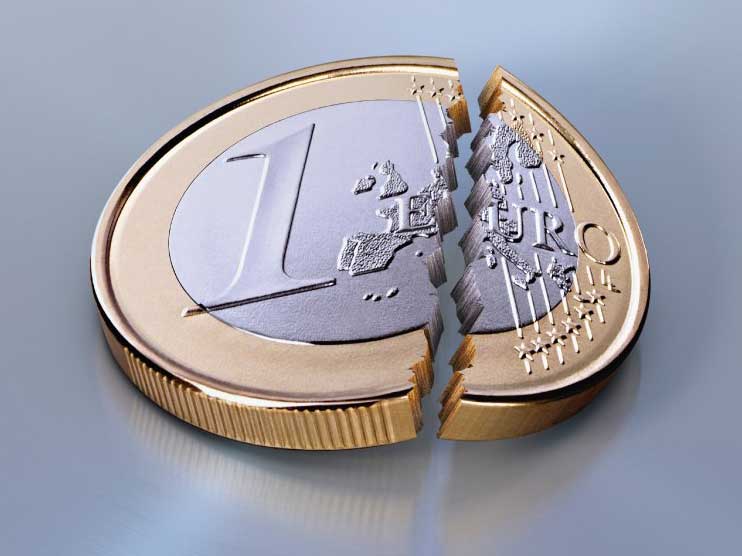Germany’s Tapped Out… So Who Will Hold Europe Together This Time?

The biggest issue for maintaining the Euro has been one of political tension.
In the US, politics takes a backseat to economics. If the economy goes into the toilet, there are political repercussions. This is because the US Government as bloated as it is, comes nowhere near the force that national Governments play for European counties.
In Europe, economics takes a backseat to politics. European countries like to emphasize how different they are, but the reality is that they all fall somewhere in the spectrum of Keynesian socialism.
Germany, which is allegedly a free-market powerhouse, has 30% of its employment derived from the Government. By way of contrast, France, has over 50% of its employment derived from its Government.
Put another way, the difference between the “free market” and outright socialism as far as Europe is concerned is the difference between 1 in 3 workers working for the Government and 1 in 2 workers working for the Government.
Because EU nations’ economies are so closely tied to the government, politics drives all other matters including economics. This is why Europe continues to elect politicians based on completely absurd ideas instead of actual economic reform or job creation.
This is also why Europe has managed to maintain the Euro for so long, despite the clear evidence that it has been an absolute economic nightmare for most, if not all, European countries. As long as European politicians could get away with bailouts, bail-ins and the confiscation of savings without losing elections, the Euro would remain intact.
As soon as maintaining the Euro becomes political suicide, then it’s GAME. SET. MATCH.
This situation is most acute for Germany, which is the ultimate backstop of the EU. There is a reason that Germany pushed for a bail-IN, not a bail-out when Cyprus need funds: an anti-Euro party was rapidly gaining ground in Germany. Angela Merkel who was up for re-election, knew that continuing to give German money away would end her political career as she knew it.So we already know that Germany is less inclined to use German money to help other EU countries. From a financial perspective, the single largest transfer payment ever made in history was the Marshall Plan, which saw the US make a transfer payment of slightly over 5% of its GDP to Europe as aid following WWII.
It is highly unlikely Germany will foot the bill for a larger amount than this on a per-GDP basis (roughly €140 billion). It’s clear that when the stuff hits the fan again in Europe (and it will) the needs will be MUCH larger than this (Spain already received a €100 billion in 2012, if that didn’t solve Europe’s problems, another €140 billion won’t).
In simple terms, Europe is in trouble. And when it gets bad again this time, the political capital won’t be there to hold the system together.
If you’ve yet to take action to prepare for the second round of the financial crisis, we offer a FREE investment report Financial Crisis "Round Two" Survival Guide that outlines easy, simple to follow strategies you can use to not only protect your portfolio from a market downturn, but actually produce profits.
You can pick up a FREE copy at:
http://www.phoenixcapitalmarketing.com/roundtwo.html
Graham Summers
Phoenix Capital Research
********
Gold-Eagle
provides regular commentary and analysis of gold, precious metals and
the economy. Be the first to be informed by signing up for our free
email newsletter.
No comments:
Post a Comment